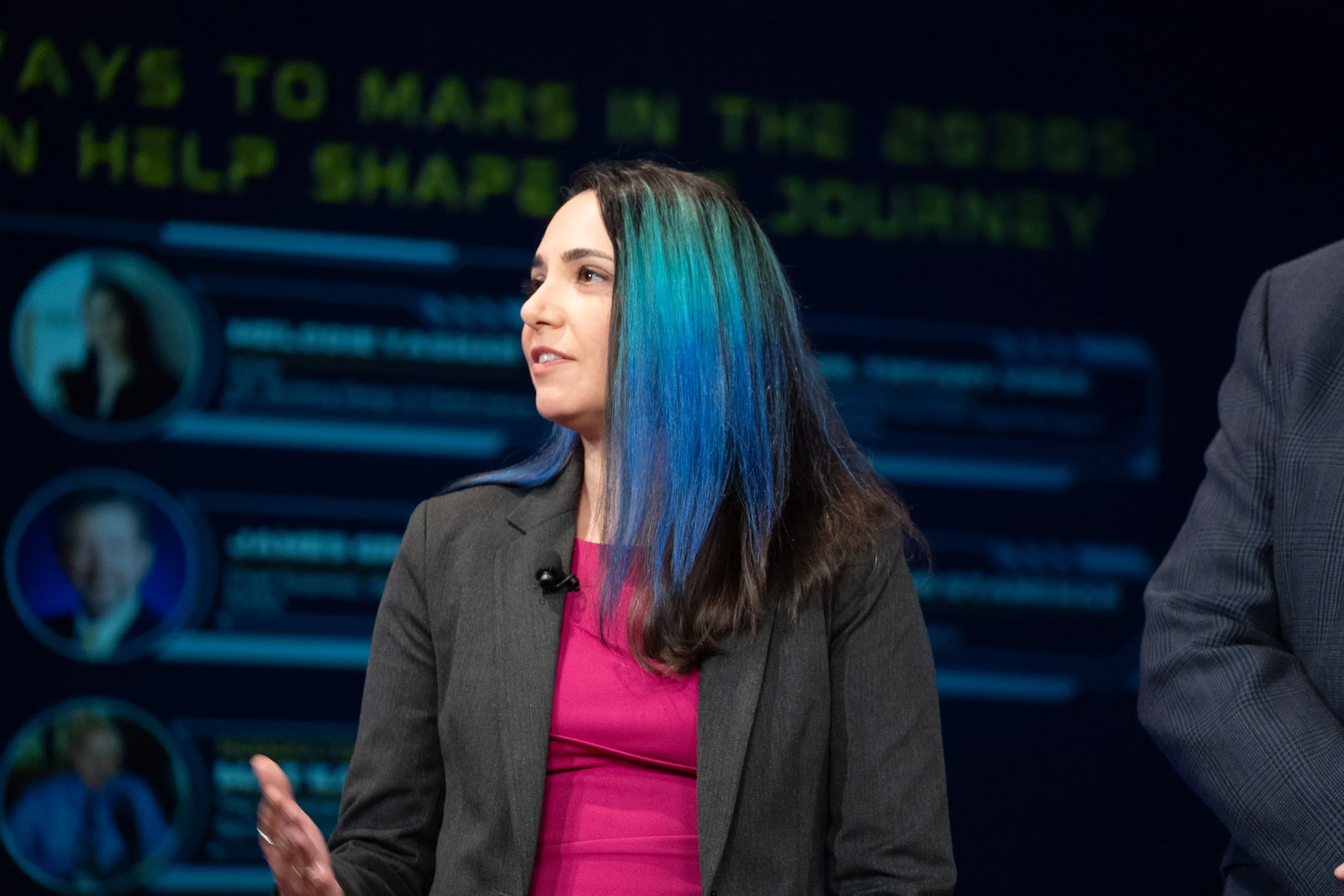Can You Retire On Mars?
Exploring Space Tourism, Mars Migration, and Lessons from Antarctica
Image credits: Max Letek | Unsplash
What if space became the next frontier of personal choice, as natural as deciding where to go for your next vacation? What about it as a destination for migration, or even retirement?
In my first Ask Me Anything session, I answered a question from my socials about space tourism: Can space be the next frontier of individual choice, like migration or retirement today? I believe that beyond rockets and technology, space gives us the opportunity to focus on meaning, stewardship, and the values that will guide our off-world adventures.
Space Tourism as Legacy, Radical Living, and the Ultimate Stress-test
I think the short answer to that question is yes. Space can become a new frontier of individual choice, much like historical migrations or retirement decisions. But will it? And what should that look like?
I believe human beings have always moved for more than just survival. We migrate for freedom, opportunity, curiosity, and the promise of better lives. As the cost of access to space decreases and infrastructure matures, I’m watching for the rise of what I call aspirational migration: people choosing to live or spend extended time beyond Earth, not because they have to, but because it reflects their vision for a meaningful life.
Just as early luxury tourism helped bootstrap aviation and deep-sea exploration, the “retirement” and tourism markets in space may initially be driven by wealthy individuals seeking legacy, wonder, or a radical life experience. Their motivations won’t necessarily be utilitarian, but their spending could enable infrastructure and business models that benefit others later.
Tourism and long-term habitation aren’t just indulgent; they stress-test life-support systems, autonomy protocols, and human adaptability. Retirees, like space tourists, may have high expectations for comfort, safety, and community, providing crucial feedback for designing sustainable habitats for everyone else.
Learning from Antarctica: Tourism with Guardrails
Sunset at Deception Island in Antarctica | Image from Tiffany’s Antarctic Exploration with Homeward Bound
When I think about how to guide this new era, I often look to Antarctica. Two Novembers ago, I traveled to the white continent for an immersive leadership experience with Homeward Bound, a group of women and non-binary leaders in STEMM who advocate for a sustainable future. Going to Antarctica was an opportunity to learn more about climate action and tackle some of Earth’s toughest challenges. So although the journey wasn’t a full-on death-defying expedition, it was not exactly a traditional vacation.
The continent is protected by the Antarctic Treaty System, which balances science, conservation, and carefully regulated tourism. Visitors cannot arrive unprepared. Operators meet strict environmental standards, and tourists are extensively briefed on ecological sensitivity (and required behaviors) before setting foot on the ice or the land.
Mars could adopt similar principles. I imagine tourism there not as escapism but as a structured expedition, one with purpose. Travelers might document the Martian landscape, contribute to research, or share stories that inspire planetary stewardship here on Earth.
Homeward Bound: Image credits: Heidi Victoria
Here are lessons from Antarctic tourism I believe could apply to Mars:
💡 Raising global awareness. Standing in fragile environments can turn visitors into lifelong advocates. Mars tourism could strengthen appreciation for Earth’s uniqueness and nurture shared responsibility for our worlds.
💡 Funding infrastructure. Visitor revenues could help finance habitats, life-support systems, and emergency services, supporting both pioneers and scientists.
💡 Citizen science and storytelling. Tourists might gather data, test new tools, or translate their journeys into art, education, and journalism.
💡 Testing governance models. Like Antarctica, Mars could become a living experiment in international cooperation, environmental ethics, and new approaches to governing shared spaces.
Questions to Keep Asking
Dr. Tiffany Vora during the Humans to Mars Summit 2024
Of course, with all this potential comes great responsibility. I often ask myself (and encourage others to ask!) questions that must shape our choices about Mars:
💡 Who gets to go? If access to space is based on wealth, will we repeat the inequities of Earth, where—historically—the privileged have shaped the future? How can we enable access for more individuals?
💡 Who designs the future? Cultures, languages, and values will define Martian life. Which perspectives will lead its governance and economy?
💡 How can we use this to make Earth better? Tourist destinations and settlements will likely rely on AI, robotics, and biotech. How can we ensure these benefits flow back to Earth?
💡 How do we protect both Earth and Mars? Planetary protection goes both ways. How do we prevent irreversible biological contamination—both of Mars by Earth microbes and to Mars ecosystems we may not even recognize yet? We need clear principles for planetary protection, heritage zones, and resource use to avoid irreversible harm.
Looking Ahead
Image credits: O-Foto | Adobe Stock
If we approach Mars thoughtfully, tourism and even retirement there could be more than novelties. They could become planetary-scale rites of passage, blending adventure, responsibility, and intergenerational value.
I envision a future where visiting or living on Mars is not about ticking off a bucket list, but about helping humanity step into a shared story beyond the horizon. By crafting experiences that inspire curiosity, responsibility, and respect for the unknown, we can make sure our reach reflects our highest aspirations.
How do you envision the next chapter of human exploration?
PS Special thanks to Doug Plata for inspiring this conversation that led me to think deeply about space tourism and the possibilities and challenges of thriving beyond Earth.
If this article sparked your curiosity, you might want to explore these too:
🚀 From Tiffany’s Ask Me Anything: Can You Retire on Mars? | Watch video clip here
🚀 From Tiffany’s Ask Me Anything: What Antarctica Can Teach Us About Space Tourism | Watch the video clip here
🚀 So… Why Space? | Watch video clip here
🚀 The Future of the Space Economy: Profit, Purpose, and the Path to Sustainability | Read the article here
🚀 Exponential Technologies and the Future of Mars: Building a Sustainable Off-World Civilization | Read the article here
🚀 Reverse Pitches: Identifying the Hardest Problems for Mars and Earth | Read the article here
🚀 Designing Digital Wellbeing for Space: Building a Human-First Digital Future | Read the article here
🚀 Biology as Technology: Advanced Biosystems for Space Exploration | Listen to the podcasthere
Do you have questions about space, biotech, and the future?
Subscribe to Be Voracious, my newsletter on Substack and join me for upcoming AMA sessions. This discussion is open to all subscribers of Be Voracious. Come join the conversation!
About Tiffany
Dr. Tiffany Vora speaks, writes, and advises on how to harness technology to build the best possible future(s). She is an expert in biotech, health, & innovation.
For a full list of topics and collaboration opportunities, visit Tiffany’s Work Together webpage.
Get bio-inspiration and future-focused insights straight to your inbox by subscribing to her newsletter, Be Voracious. And be sure to follow Tiffany on LinkedIn, Instagram, Youtube, and X for conversations on building a better future.
Buy Tiffany a Cup of Coffee | Image credits: Irene Kredenets via Unsplash.
Donate = Impact
If this article sparked curiosity, inspired reflection, or made you smile, consider buying Tiffany a cup of coffee!
Your support will:
Spread your positive impact around the world
Empower Tiffany to protect time for impact-focused projects
Support her travel for pro bono events with students & nonprofits
Purchase carbon offsets for her travel
Create a legacy of sustainability with like-minded changemakers!
Join Tiffany on her mission by contributing through her Buy Me a Coffee page.






